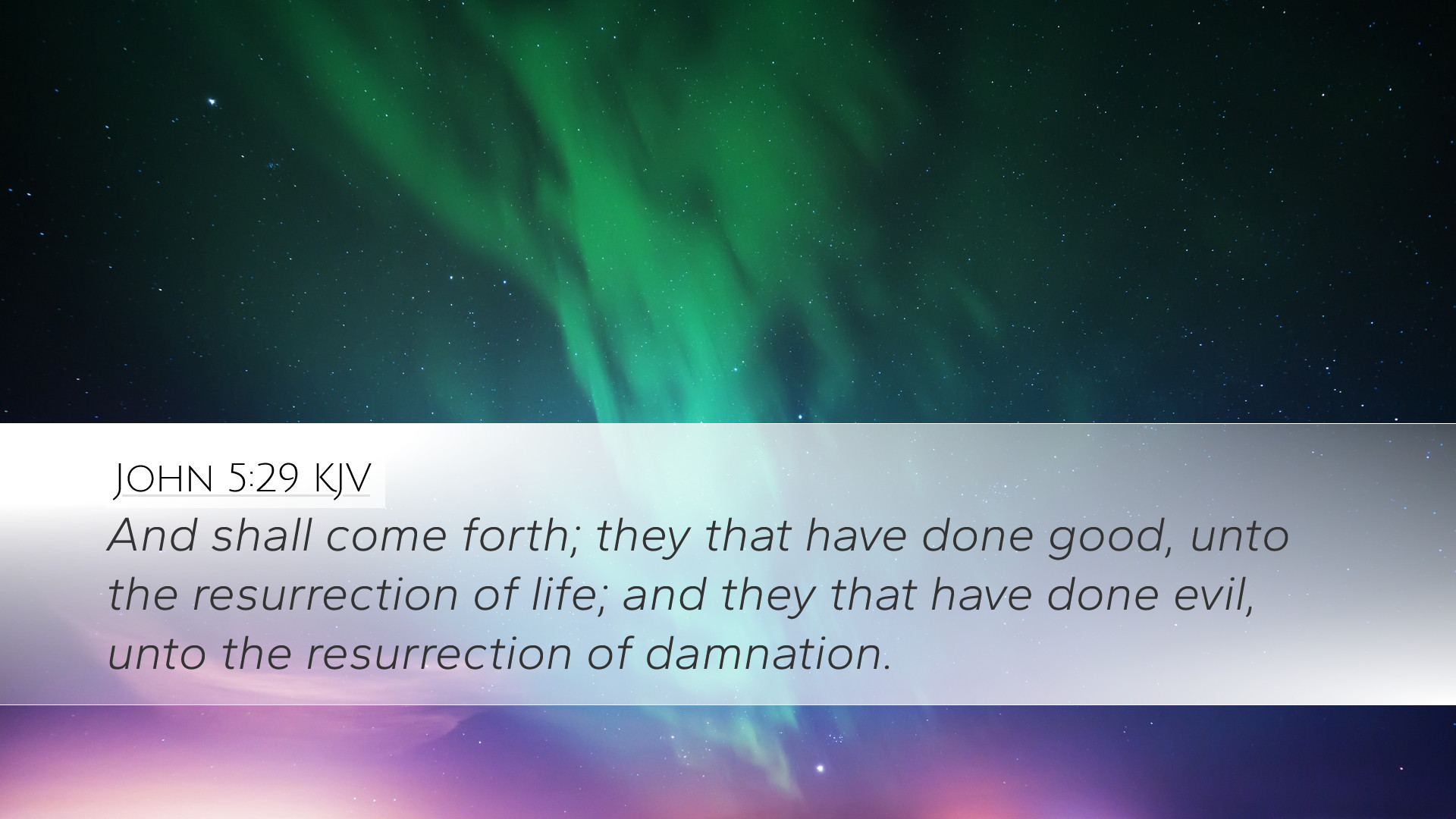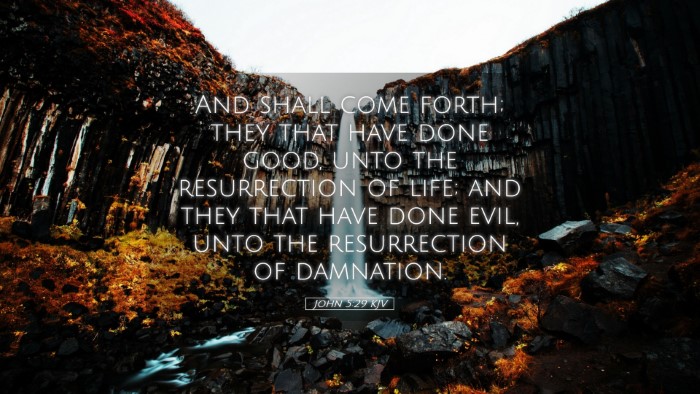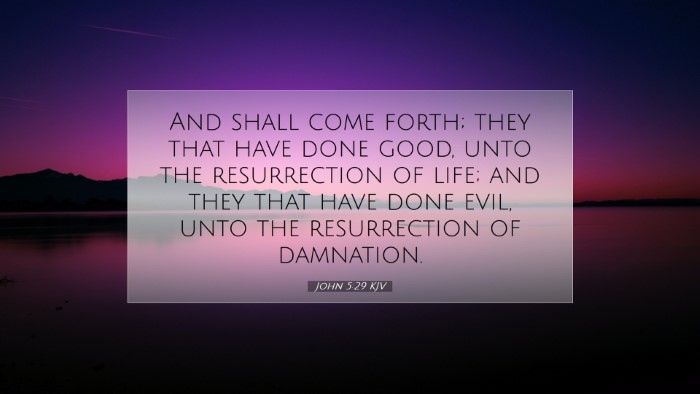Commentary on John 5:29
John 5:29 states: "and shall come forth; they that have done good, unto the resurrection of life; and they that have done evil, unto the resurrection of damnation." This verse is a pivotal declaration made by Jesus, emphasizing the profound themes of resurrection, judgment, and the moral accountability of every individual.
Overview of John 5:29
This verse is located in the midst of a discourse where Jesus outlines His authority to give life and judge. Here, He presents a dual outcome based on the moral standing of individuals at the time of resurrection.
Insights from Public Domain Commentaries
Matthew Henry's Commentary
Resurrection of Life vs. Resurrection of Damnation:
Matthew Henry emphasizes that this verse speaks to the ultimate fate of all humanity, categorizing them into two distinct groups. The 'resurrection of life' pertains to those who, through faith and good works, have aligned themselves with God's will. In contrast, 'the resurrection of damnation' is reserved for those whose lives reflect rebellion against divine principles. Henry underscores that the quality of one's life choices will be the determining factor of their eternal destiny.
Albert Barnes' Notes on the New Testament
Moral Accountability:
Barnes points out that this verse serves as an essential reminder of the accountability before God that every individual must face. He explains that the resurrection will not only be a physical reawakening but also a moral and spiritual reckoning. This implies that actions carried out in this life have profound implications for the next, reinforcing the lesson that living righteously yields everlasting life, while unrighteousness leads to condemnation.
Role of Christ in Judgment
Barnes also highlights the role of Jesus Himself in this judgment. He indicates that, as the Son of God, Jesus possesses the authority to execute judgment, having the power to ultimately decide the eternal state of each individual. This authority stems from His identity as both fully divine and fully human—a truth that gives weight to His declarations.
Adam Clarke's Commentary
Understanding 'Good' and 'Evil':
Adam Clarke clarifies the definitions of 'good' and 'evil' within the context of this verse. He notes that 'good' refers to those who have fulfilled God's commandments, actively participating in acts of love, mercy, and justice. Conversely, 'evil' encompasses those who have forsaken divine precepts, engaging in sinful behaviors that separate them from God. Clarke emphasizes that the essence of Christian teaching is rooted in love and righteousness, which ultimately leads to eternal life.
The Theological Implications
Clarke explores the theological implications surrounding this resurrection. He delves into the notion that eternal life is not merely a future promise but a present reality for believers. Their actions, informed by faith, are a testament to their relationship with God and their assurance of resurrection and eternal life.
Theological Themes
The theological implications of John 5:29 highlight several important themes relevant to pastors, students, theologians, and Bible scholars:
- Resurrection: This verse presents a foundational Christian belief in the resurrection of the dead, suggesting that all will rise—either to a state of honor or to condemnation.
- Judgment: It affirms the belief in divine judgment, where one's earthly life profoundly impacts their eternal state. This is a call to moral accountability and integrity.
- Hope and Assurance: For believers, there is an assurance of resurrection to life, which brings hope amidst trials and spiritual struggles. The present struggle is contrasted with the glorious future awaiting the faithful.
- The Nature of God’s Justice: The bifurcation of humanity into two groups based on moral behavior reiterates God's justice, wherein every individual is held accountable for their actions.
Application for Today's Believers
This verse compels contemporary believers to reflect on their daily choices and the morality of their actions. It serves several practical applications for faith communities:
- Encouragement to Live Righteously: Believers are reminded to live in accordance with God's will, seeking to embody Christ's teachings through their actions.
- Need for Evangelism: Pastors and church leaders are encouraged to share the Gospel, reminding others of the importance of choosing the path that leads to life.
- Cultivating Moral Awareness: Individuals are called to cultivate an awareness of their moral choices, recognizing the significance these hold in their spiritual journey.
Conclusion
John 5:29 encapsulates a profound theological truth about resurrection and judgment, challenging believers to pursue lives that reflect righteousness and obedience. The insights drawn from esteemed public domain commentators amplify the significance of this scripture, urging all to seriously contemplate their lives in light of eternity.


